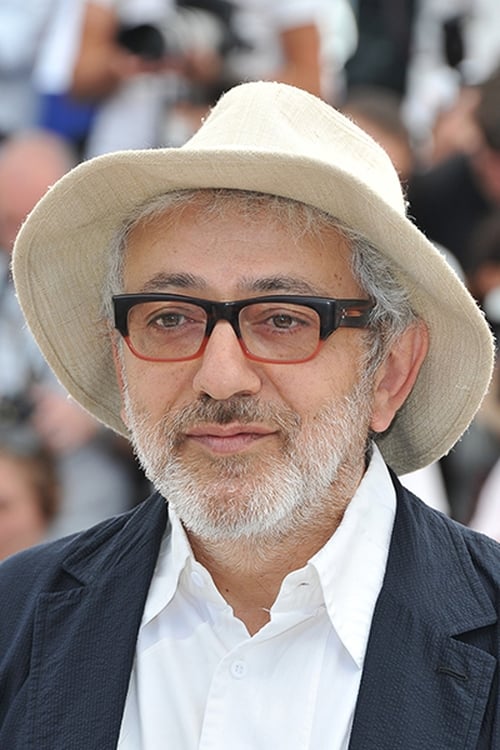Elia Suleiman
Nacimiento : 1960-07-28, Nazareth, Israel
Historia
Elia Suleiman (Nazaret, Israel; 28 de julio de 1960) es un director de cine, actor y guionista palestino con ciudadanía israelí. Es conocido por sus películas Divine Intervention (2002) y The Time That Remains (2009).
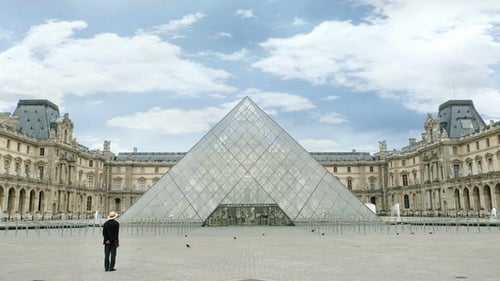
Producer
El director Elia Suleiman viaja a diferentes ciudades del mundo en busca de similitudes con su tierra natal, Palestina.

Writer
El director Elia Suleiman viaja a diferentes ciudades del mundo en busca de similitudes con su tierra natal, Palestina.

Director
El director Elia Suleiman viaja a diferentes ciudades del mundo en busca de similitudes con su tierra natal, Palestina.

E.S.
El director Elia Suleiman viaja a diferentes ciudades del mundo en busca de similitudes con su tierra natal, Palestina.

Self
Khalo Matabane spent two years making the film, interviewing those who knew and loved Mandela, and also those who criticised him. Global thinkers, politicians and artists including the Dalai Lama, Henry Kissinger and Ariel Dorfman talk about the effect of his policies and his decision making. Their thoughts are weighed equally with ordinary South Africans like Charity Kondile, who refuses to forgive her son's apartheid operative murderer. Through these interviews, completed in the last months of Mandela's life, Matabane interrogates for himself the meaning of freedom, reconciliation and forgiveness. By doing so he challenges Mandela's enduring impact in today's world of conflict and inequality. Thought-provoking and reflective, Mandela, the Myth and Me is a moving film which frames Mandela from a fresh, deeply personal perspective. (Storyville)

Self
At the 60th anniversary of Cannes Film Festival, 34 famous directors are followed by camera.
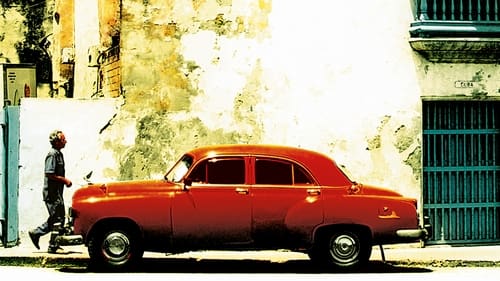
E.S. (segment "Diary of a Beginner")
La Habana como centro neurálgico. Mil y una historias se entremezclan en esta ciudad emblemática que está sufriendo cambios a pasos acelerados. La película pretende servir de reflejo a estas pulsiones que acontecen en la ciudad, y también describir sus mutaciones, la vida de sus gentes: qué hacen, qué comen, cómo se relacionan, qué relación mantienen con sus tradiciones, cuáles son sus sueños y aspiraciones... A partir de un hilo conductor como es la llegada de un empresario extranjero que va a la ciudad a contratar a una artista y termina enamorándose de una mujer nativa, una serie de directores reflexionan en torno a la vida en la capital cubana, sumergiéndose en su espíritu e impregnándose de su ideosincrasia.

Director
La Habana como centro neurálgico. Mil y una historias se entremezclan en esta ciudad emblemática que está sufriendo cambios a pasos acelerados. La película pretende servir de reflejo a estas pulsiones que acontecen en la ciudad, y también describir sus mutaciones, la vida de sus gentes: qué hacen, qué comen, cómo se relacionan, qué relación mantienen con sus tradiciones, cuáles son sus sueños y aspiraciones... A partir de un hilo conductor como es la llegada de un empresario extranjero que va a la ciudad a contratar a una artista y termina enamorándose de una mujer nativa, una serie de directores reflexionan en torno a la vida en la capital cubana, sumergiéndose en su espíritu e impregnándose de su ideosincrasia.

Self
Un director de cine, un actor, un músico, un organizador de festivales, un marido, un padre, un abuelo, un amigo, un profesor ... Esta película es un encuentro inesperado con uno de los directores de cine europeos más fascinantes: Emir Kusturica. Este es un viaje a la memoria y al olvido. Más allá del éxito, el dinero, las dependencias y el orgullo. Una mirada más profunda al mundo de Kusturica y su ciudad de madera en Mokra Gora. Un cuento sobre las batallas ganadas, así como las perdidas. Sobre la curiosidad eterna en el cine.
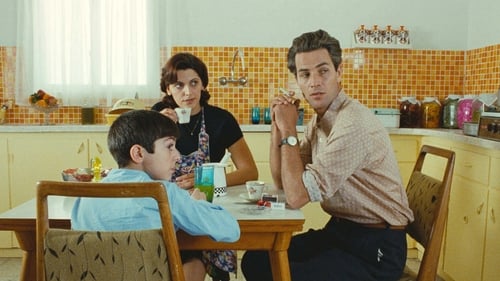
Producer
Film semibiográfico, dividido en cuatro episodios históricos, que narra la historia de una familia (mi familia) desde 1948 hasta la actualidad. La película está inspirada en los diarios de mi padre, empezando por cuando él era un luchador de la resistencia en 1948, y las cartas de mi madre a familiares que eran forzados a abandonar el país desde entonces. Combinados con mis memorias de ellos y con ellos, la película intenta retratar la vida diaria de aquellos palestinos que permanecen en su país y que fueron etiquetados como "árabe-isralíes", viviendo como minoría en su propia tierra.

Writer
Film semibiográfico, dividido en cuatro episodios históricos, que narra la historia de una familia (mi familia) desde 1948 hasta la actualidad. La película está inspirada en los diarios de mi padre, empezando por cuando él era un luchador de la resistencia en 1948, y las cartas de mi madre a familiares que eran forzados a abandonar el país desde entonces. Combinados con mis memorias de ellos y con ellos, la película intenta retratar la vida diaria de aquellos palestinos que permanecen en su país y que fueron etiquetados como "árabe-isralíes", viviendo como minoría en su propia tierra.

E.S.
Film semibiográfico, dividido en cuatro episodios históricos, que narra la historia de una familia (mi familia) desde 1948 hasta la actualidad. La película está inspirada en los diarios de mi padre, empezando por cuando él era un luchador de la resistencia en 1948, y las cartas de mi madre a familiares que eran forzados a abandonar el país desde entonces. Combinados con mis memorias de ellos y con ellos, la película intenta retratar la vida diaria de aquellos palestinos que permanecen en su país y que fueron etiquetados como "árabe-isralíes", viviendo como minoría en su propia tierra.

Director
Film semibiográfico, dividido en cuatro episodios históricos, que narra la historia de una familia (mi familia) desde 1948 hasta la actualidad. La película está inspirada en los diarios de mi padre, empezando por cuando él era un luchador de la resistencia en 1948, y las cartas de mi madre a familiares que eran forzados a abandonar el país desde entonces. Combinados con mis memorias de ellos y con ellos, la película intenta retratar la vida diaria de aquellos palestinos que permanecen en su país y que fueron etiquetados como "árabe-isralíes", viviendo como minoría en su propia tierra.
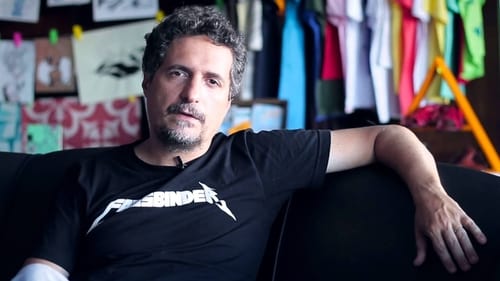
Self
Seventy critics and filmmakers discuss cinema around the conflict between the artist and the observer, the creator and the critic. Between 1998 and 2007, Kléber Mendonça Filho recorded testimonies about this relationship in Brazil, the United States and Europe, based on his experience as a critic.
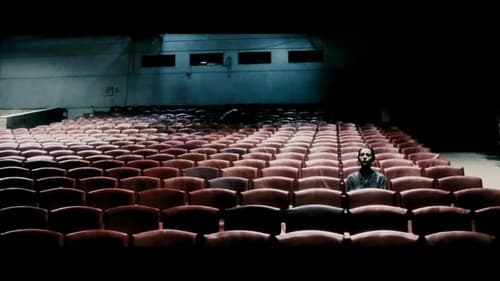
The filmmaker (segment "Irtebak")
Reunión de 33 cortometrajes de unos tres minutos cada uno realizados por 35 directores con motivo del 60 aniversario del Festival de Cannes.

Director
Reunión de 33 cortometrajes de unos tres minutos cada uno realizados por 35 directores con motivo del 60 aniversario del Festival de Cannes.

A Palestinian director is uncomfortable at a film festival.

Director
A Palestinian director is uncomfortable at a film festival.

Cow-boy
Melé canta en un bar, su marido Chaka está en el paro y la pareja está a punto de romper. El patio de la casa que comparten con otras familias se ha convertido en una sala de juicios: portavoces de la sociedad civil africana acusan al Banco Mundial y al Fondo Monetario Internacional de los males que afligen a África. Y mientras se suceden las declaraciones de acusadores, defensores y testigos, la vida en el patio continúa. Chaka no parece muy preocupado por este deseo insólito de África de luchar por sus derechos. (FILMAFFINITY)
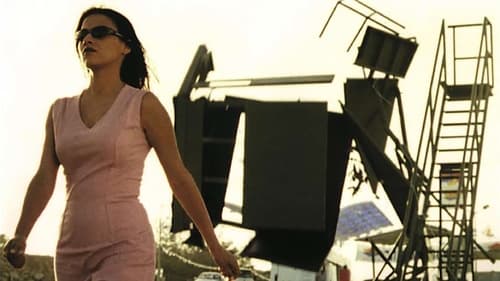
Co-Producer
Aclamado film franco palestino que aborda con humor surrealista el conflicto palestino en Oriente Medio a través de la historia de un palestino de Jerusalén que se enamora de una palestina que vive en Ramala.

Writer
Aclamado film franco palestino que aborda con humor surrealista el conflicto palestino en Oriente Medio a través de la historia de un palestino de Jerusalén que se enamora de una palestina que vive en Ramala.

E.S.
Aclamado film franco palestino que aborda con humor surrealista el conflicto palestino en Oriente Medio a través de la historia de un palestino de Jerusalén que se enamora de una palestina que vive en Ramala.

Director
Aclamado film franco palestino que aborda con humor surrealista el conflicto palestino en Oriente Medio a través de la historia de un palestino de Jerusalén que se enamora de una palestina que vive en Ramala.

Writer
Cyber Palestine is a parable about a modern-day Mary and Joseph, two Palestinian returnees living in Gaza, and their tribulations with the Israeli occupation. Cyber Palestine was commissioned by the Palestinian National Authority's Bethlehem 2000 Project as part of the millennium commemorations in Bethlehem.

Director
Cyber Palestine is a parable about a modern-day Mary and Joseph, two Palestinian returnees living in Gaza, and their tribulations with the Israeli occupation. Cyber Palestine was commissioned by the Palestinian National Authority's Bethlehem 2000 Project as part of the millennium commemorations in Bethlehem.

Cinematography
In this autobiographical film the Palestinian filmmaker Elia Suleiman goes in search of his past and possible future in occupied Palestine. Wherever he looks, he feels surrounded by images and places that have a political significance. Can a landscape be free of meaning, is there any point in striving for an approach that transcends all ideology? Commissioned by the ARTE network as part of a series of films for the end of the millennium, this film is a travelogue through Jerusalem, Nazareth and Ramallah. The film is a meditation on quotidian injustices, and a formulation of an aesthetic and creative response to them.

Himself
In this autobiographical film the Palestinian filmmaker Elia Suleiman goes in search of his past and possible future in occupied Palestine. Wherever he looks, he feels surrounded by images and places that have a political significance. Can a landscape be free of meaning, is there any point in striving for an approach that transcends all ideology? Commissioned by the ARTE network as part of a series of films for the end of the millennium, this film is a travelogue through Jerusalem, Nazareth and Ramallah. The film is a meditation on quotidian injustices, and a formulation of an aesthetic and creative response to them.

Writer
In this autobiographical film the Palestinian filmmaker Elia Suleiman goes in search of his past and possible future in occupied Palestine. Wherever he looks, he feels surrounded by images and places that have a political significance. Can a landscape be free of meaning, is there any point in striving for an approach that transcends all ideology? Commissioned by the ARTE network as part of a series of films for the end of the millennium, this film is a travelogue through Jerusalem, Nazareth and Ramallah. The film is a meditation on quotidian injustices, and a formulation of an aesthetic and creative response to them.

Director
In this autobiographical film the Palestinian filmmaker Elia Suleiman goes in search of his past and possible future in occupied Palestine. Wherever he looks, he feels surrounded by images and places that have a political significance. Can a landscape be free of meaning, is there any point in striving for an approach that transcends all ideology? Commissioned by the ARTE network as part of a series of films for the end of the millennium, this film is a travelogue through Jerusalem, Nazareth and Ramallah. The film is a meditation on quotidian injustices, and a formulation of an aesthetic and creative response to them.

Director
In the train on the way to the Festival in Vesoul, filmmakers Amos Gitai and Elia Suleiman talk about the subjects that preoccupy them: war and peace in the Middle East, their film projects, their cities, their private lives… In Vesoul, the French welcome is rather comical and the questions of war and peace in the Middle East create misunderstandings: through a kind of inverted exoticism, we end up wondering who is really the “stranger” in this story.

Producer
Chronicle of a Disappearance unfolds in a series of seemingly unconnected cinematic tableaux, each of them focused on incidents or characters which seldom reappear later in the film. Among the many unrelated scenes, there is a Palestinian actress struggling to find an apartment in West Jerusalem, the owner of the Holy Land souvenir shop preparing merchandise for incoming Japanese tourists, a group of old women gossiping about their relatives, and an Israeli police van which screeches to a halt so several heavily armed soldiers can get off the car and urinate.

E.S.
Chronicle of a Disappearance unfolds in a series of seemingly unconnected cinematic tableaux, each of them focused on incidents or characters which seldom reappear later in the film. Among the many unrelated scenes, there is a Palestinian actress struggling to find an apartment in West Jerusalem, the owner of the Holy Land souvenir shop preparing merchandise for incoming Japanese tourists, a group of old women gossiping about their relatives, and an Israeli police van which screeches to a halt so several heavily armed soldiers can get off the car and urinate.

Writer
Chronicle of a Disappearance unfolds in a series of seemingly unconnected cinematic tableaux, each of them focused on incidents or characters which seldom reappear later in the film. Among the many unrelated scenes, there is a Palestinian actress struggling to find an apartment in West Jerusalem, the owner of the Holy Land souvenir shop preparing merchandise for incoming Japanese tourists, a group of old women gossiping about their relatives, and an Israeli police van which screeches to a halt so several heavily armed soldiers can get off the car and urinate.

Director
Chronicle of a Disappearance unfolds in a series of seemingly unconnected cinematic tableaux, each of them focused on incidents or characters which seldom reappear later in the film. Among the many unrelated scenes, there is a Palestinian actress struggling to find an apartment in West Jerusalem, the owner of the Holy Land souvenir shop preparing merchandise for incoming Japanese tourists, a group of old women gossiping about their relatives, and an Israeli police van which screeches to a halt so several heavily armed soldiers can get off the car and urinate.

The second Gulf War from 1990 to 1991 represents in the collective Arab memory a turning point in regards to the Arab nationalism’s self-perception as well as a moment of deep historical and existential insecurity. Five Arab directors discuss the events from their personal perspective.

Writer
The second Gulf War from 1990 to 1991 represents in the collective Arab memory a turning point in regards to the Arab nationalism’s self-perception as well as a moment of deep historical and existential insecurity. Five Arab directors discuss the events from their personal perspective.

Director
The second Gulf War from 1990 to 1991 represents in the collective Arab memory a turning point in regards to the Arab nationalism’s self-perception as well as a moment of deep historical and existential insecurity. Five Arab directors discuss the events from their personal perspective.

Writer
A Palestinian filmmaker is writing a script in his New York apartment during the first Gulf war. As much as he tries to shut himself off from the exterior world, images of past wars in the Middle East come back to haunt him.

Producer
A Palestinian filmmaker is writing a script in his New York apartment during the first Gulf war. As much as he tries to shut himself off from the exterior world, images of past wars in the Middle East come back to haunt him.

Director
A Palestinian filmmaker is writing a script in his New York apartment during the first Gulf war. As much as he tries to shut himself off from the exterior world, images of past wars in the Middle East come back to haunt him.

E.S.
A Palestinian filmmaker is writing a script in his New York apartment during the first Gulf war. As much as he tries to shut himself off from the exterior world, images of past wars in the Middle East come back to haunt him.

Director
This highly kinetic tableaux of uprooted sights and sounds works most earnestly to expose the racial biases concealed in familiar images. Relying on valuable snippets from feature films such as "Exodus", "Lawrence of Arabia", "Black Sunday", "Little Drummer Girl", and network news shows, the filmmakers have constructed an oddly wry narrative, mimicking the history of Mid East politics.
